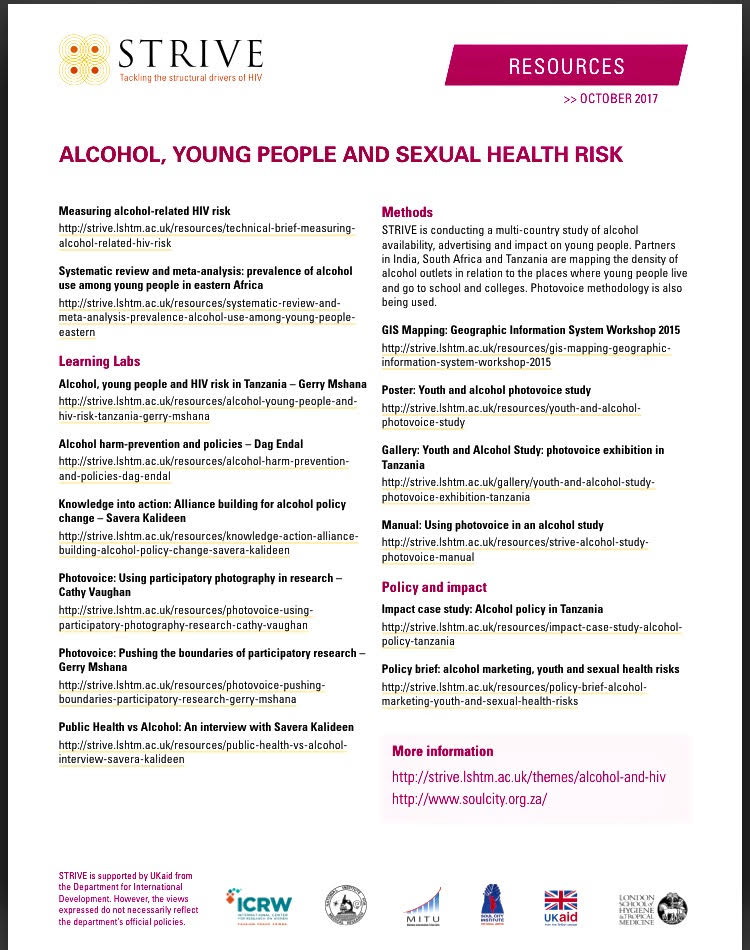This presentation was originally given by Gerry Mshana at the Global Alcohol Policy Conference in 2017. It presents findings from a qualitative study in Mwanza and Kilimanjaro regions Tanzania, that explored the use of liquor sachets among youth.
Findings:
Key thematic resource pages
STRIVE have produced a wide range of academic and accessible resources which are available on our website. In 2017, we began compiling our most important thematic resources into one-page handouts to share online and at important meetings and conferences. These one-pagers provide a thematic map to our website and are available to download below.
Evidence brief: Alcohol availability, marketing and sexual health risks to youth in South Africa
Youth drinking is a global health problem and South Africa is no exception. Research shows that drinking from an early age increases the chances of developing alcohol dependence later in life. Youth are especially vulnerable to the many health risks that drinking entails. These include:
Alcohol and Young People: STRIVE Resources
To find resources related to research on alcohol and HIV risk, search STRIVE's resource section. This one-pager gives the links to a selection of useful documents on the alcohol, young people and sexual risk.

Youth and alcohol photovoice study
Impact case study: Alcohol Policy in Tanzania
Harmful alcohol use is associated with a number of HIV risk factors. A national alcohol policy – informed by public health evidence – will regulate alcohol availability and marketing in Tanzania. This in turn will reduce health and social harms, including HIV risk, especially among young people.
Alcohol Policy in Tanzania
Read the full impact case study here
Harmful alcohol use is associated with a number of HIV risk factors. A national alcohol policy – informed by public health evidence – will regulate alcohol availability and marketing in Tanzania. This in turn will reduce health and social harms, including HIV risk, especially among young people.
Ethanol Concentration of Traditional Alcoholic Beverages in Northern Tanzania
In sub-Saharan Africa, the annual consumption of pure alcohol has been estimated to range from 4.9 L to 7.1 L per capita, although intake is likely to be significantly higher because of the unrecorded consumption of traditionally produced beverages (WHO, 2014). Few studies from sub-Saharan Africa have investigated the alcohol concentration of typical traditional brews, leading to substantial uncertainty of the estimated per capita consumption of unrecorded locally brewed alcohol.
Photovoice: Pushing the boundaries of participatory research - Gerry Mshana
Why use photovoice as a research methodology? This Learning Lab presents experiences and findings from two studies in Tanzania, detailing successes and challenges of this approach.
Policy brief: Alcohol marketing, youth and sexual health risks
Harmful alcohol use by South African youth is associated with multiple risks to sexual health. Soul City Institute, an affiliate of the STRIVE research consortium, conducted a community based study in a rural village in Mpumalanga and an urban township in Gauteng, South Africa to:



